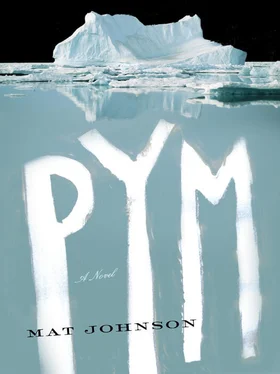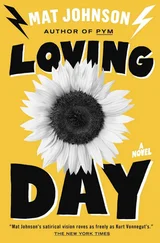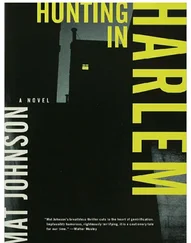“No, you don’t, and I’ll tell you why. The Diversity Committee has one primary purpose: so that the school can say it has a diversity committee. They need that for when students get upset about race issues or general ethnic stuff. It allows the faculty and administration to point to it and go, ‘Everything’s going to be okay, we have formed a committee.’ People find that very relaxing. It’s sort of like, if you had a fire, and instead of putting it out, you formed a fire committee. But none of the ideas that come out of all that committeeing will ever be implemented, see? Nothing the committee has suggested in thirty years has ever been funded. It’s a gerbil wheel, meant to ‘Keep this nigger boy running.’ ”
“Ellison.” He smiled. I knew a black author reference would get to him. “Now that cat was straight hip-hop,” he continued. I would have corrected the hip to be, but what’s a difference of black American musical traditions among kin?
“Chris Jaynes. You know, I’ve read some of your early work, your Ellison theory. That had the beat. Why don’t you bring it like that no more?” he asked me, and I glowed at this. Old musicians asked to play their classic songs, they must get this feeling. You’re tired of it, sure, but at least somebody cares. I thanked him, told him how I’ve developed, how I’ve been drawn toward nineteenth-century fiction, Edgar Allan Poe.
As I’m getting up to hit the john, right as I’m turned away, Mosaic Johnson says, “Man, nobody cares about the Poe thing.” And I laughed back at him and told him thanks for getting my pain and in moments I was off to pissing.
In the can, standing in front of the urinal, I was still for the moment. It felt like it was the first time I was truly still since this whole disaster had started. Even when I was pulled into a ball on the floor, I was rocking and reeling internally. But this bathroom, this empty bathroom, it was like a temple. Utterly serene. And within that silence, clarity came to me. I started thinking about my past, and my new friend. And I started to think about everything he had said, and all of his responses. And I was surprised to find a previously undetected negative tone there. Not in his words, but in the little performances in his demeanor. His last statement being the irrefutable proof of this.
“You’re not in the music department are you?” I said to him on my return. I didn’t even sit down. I was standing. I was shaking. My voice was cracking a little bit too, which was beyond my control.
“No, I am not. My instrument is the QWERTY keyboard,” he admitted. Took the last swig from his Hennessy, and then swiveled to face me.
“You’re here to replace me, aren’t you? You’re here to take my job. To take my office. That’s why you’re in this bar tonight, isn’t it?”
“Man, just relax. Ain’t nothing personal. Yes, I’m the new hire. Yes, it was your tenure line. I never said I was a music prof. I said I was a hip-hop theorist, okay? That’s my school of literary criticism, right? I’m here to bring the beat to the text, that’s it. It’s all good. And hell yes I will represent myself as the strong black man I am on this campus.”
“Right. You’re here to be the Diversity Committee.”
“Look, cuz, unlike you, clearly, I believe in trying to change things. Fighting against racism where I see it. I don’t back down, and I don’t apologize for that either. Hell yeah, I’m down for the damn committee. I’m down for the fight, know what I’m saying?” A Ph.D. can’t manage a lot of menace, but we are good at reading between the lines. I knew exactly what he meant, no footnotes needed. Still, I stepped in closer.
“You know what I think? I think that when you fight the same battles, with the same tactics, you don’t get any further. That unless you address the roots of the problem, it will continue to grow.”
This was fairly eloquent for me. Given that it was off the cuff. No peer review or rewrites. And I was proud that I had thought it there and not later via l’esprit de l’escalier . It was the arrogance brought on by this success that made me pause two steps into my exit, turn, and continue.
“And the white folks here know that. And they like it that way. You’re hired to be the angry black guy, get it? You’re not fighting Whiteness, you’re feeding its perversion. You’re here so you can assuage their guilt without making them actually change a damn thing. They want you to be the Diversity Committee. Because every village needs a fool.” Still, I felt I was sticking to my thesis closely, not diverting off into too much bullshit. If Mosaic Johnson had kept his mushy buttocks on the stool instead of getting in my face then, it would have made a decent closer.
“Oh I get it. I get it now, why you love Poe. You two share one big thing in common. Neither one of you is a damn bit relevant anymore.”
“This college can really use you,” I returned, preparing myself to hoof it. “Every good zoo needs a caged gorilla.”
It was an inflammatory statement. I lit that shit on fire too, just to watch him burn. Even I was offended, to tell the truth, and that’s why I chose that level of toxic phraseology to hit him. He hit me back, though. First in the gut and then, when I went down to the floor, in several other places.
Mosiac Johnson could definitely bring the beat. To me personally, he brought the beat down. †
“Poe. Doesn’t. Matter,” he said as he pummeled. I respected him for that, though. He guessed correctly his weak suburban mini-mall kung fu punches might not be enough to hurt me.
“Tekeli-li!” I laughed, as the crowd pulled Mosaic Johnson from my body.
“Tekeli-li!”
* Matthew Henson excluded.
† Not to be confused with the “downbeat.”
TEKELI–LI. Tekeli-li, Tekeli-li. I got that from Pym . I got that from Poe. The Narrative of Arthur Gordon Pym of Nantucket by Edgar Allan Poe, specifically. Pym that is maddening, Pym that is brilliance, Pym whose failures entice instead of repel. Pym that flows and ignites and Pym that becomes so entrenched it stagnates for hundreds of words at a time. A book that at points makes no sense, gets wrong both history and science, and yet stumbles into an emotional truth greater than both.
The Narrative of Arthur Gordon Pym was Edgar Allan Poe’s only novel. It shows. A self-proclaimed “magazinist” who plied his trade mostly with Virginia’s Southern Literary Messenger , Poe attempted the long form only because that’s what the editors at Harper & Brothers were looking for. Poe was broke, his relationship with the Messenger soured, his intended entrée into New York literary society failed in drunken spectacle. Spiraling into the wreck he became known for, Edgar Allan Poe was barely writing anything new and couldn’t find buyers for a collection of his short stories. The novel was a novelty, a lucrative one, so he cashed in. As for the idea of a book in “which a single connected story occupies the whole volume,” Poe went along grudgingly, belligerent.
We start the story as Pym and his best friend, the ace sailor Augustus, joyride on a small boat at their home port in Nantucket, only to have Augustus pass out drunk not long after they set sail into the night. The two get rescued and, having escaped near dismemberment and drowning, decide the sea is the life for them. The novice Pym can’t get passage on one of whalers headed out of town, so Augustus stows his boy away in a large crate in the hold, placing a mattress, a bit of water, and a few snacks inside with him. The plan is that Pym will spring out after a few days at sea and reveal himself to the crew when it’s too late to turn back and dump him. Problem is, Augustus never comes back for him. We don’t know why, and neither does our impish hero. As a result, Pym starts starving to death, dehydrating in the dark hull, where the oddly jumbled cargo threatens with each wave to fall over and crush him.
Читать дальше












